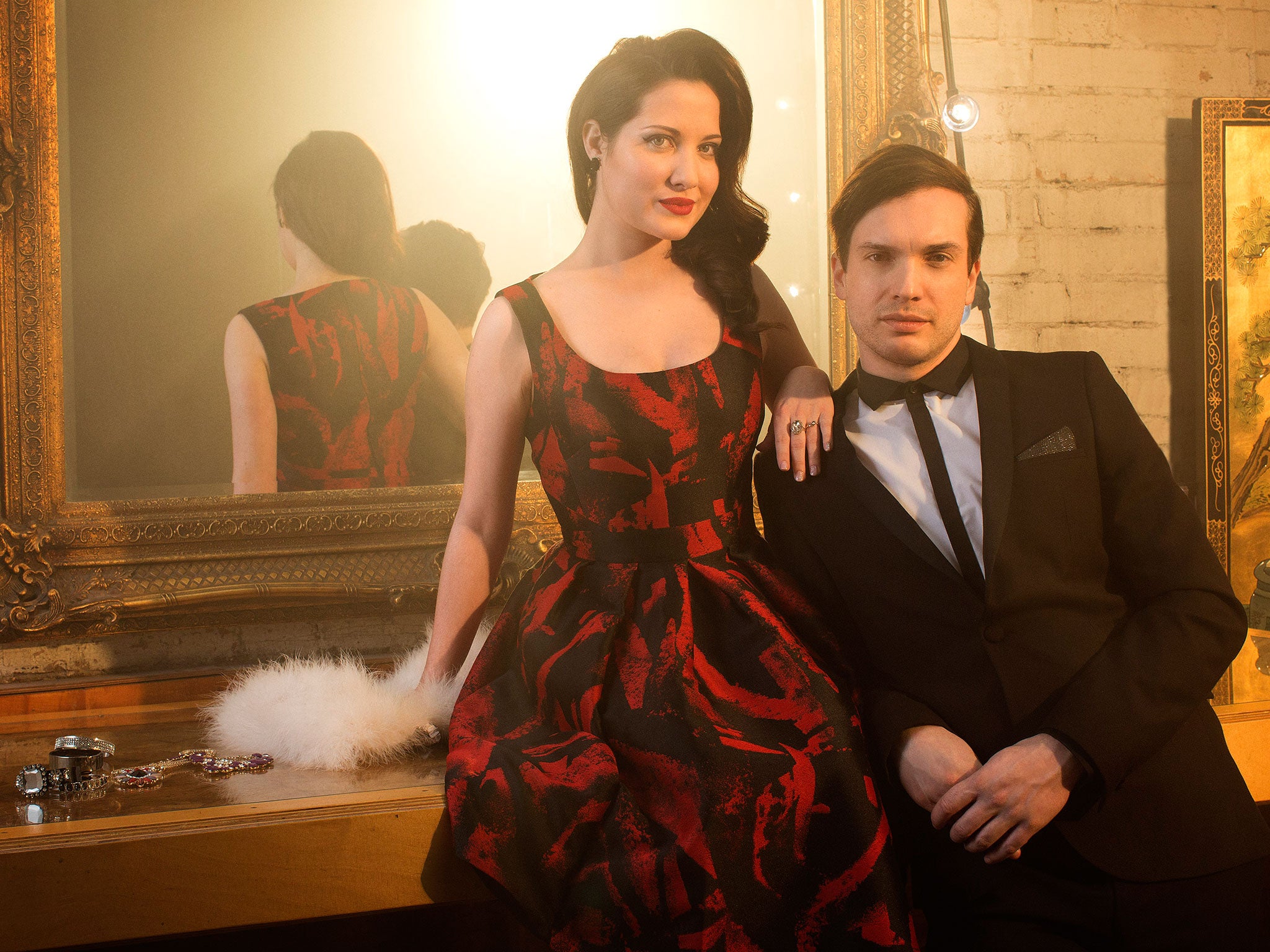Eurovision 2015: Does the UK have a chance of success with entry Electro Velvet?
Will the UK finally take the contest seriously and claim glory in Vienna?

Your support helps us to tell the story
From reproductive rights to climate change to Big Tech, The Independent is on the ground when the story is developing. Whether it's investigating the financials of Elon Musk's pro-Trump PAC or producing our latest documentary, 'The A Word', which shines a light on the American women fighting for reproductive rights, we know how important it is to parse out the facts from the messaging.
At such a critical moment in US history, we need reporters on the ground. Your donation allows us to keep sending journalists to speak to both sides of the story.
The Independent is trusted by Americans across the entire political spectrum. And unlike many other quality news outlets, we choose not to lock Americans out of our reporting and analysis with paywalls. We believe quality journalism should be available to everyone, paid for by those who can afford it.
Your support makes all the difference.Forgetting about the 21st century, the United Kingdom has a proud record in Eurovision.
Winners in 1967, 1969, 1976, 1981 and 1997; runners-up on a record 15 occasions; the British have a formidable history in the competition. Yet since Katrina and the Waves took the crown in 1997, the UK has slumped in the standings, finishing in last place for the first time in 2003, a feat repeated in 2008 and 2010.
Thus, every year that comes around, the British either hope all that negativity will change or they we don't really care and it's not a worthy competition anyway. However, to not care about Eurovision is to disrespect our glorious winners: Sandie Shaw, Lulu, Brotherhood of Man, Bucks Fizz and Katrina and the Waves.
So can this year's contestants, Electro Velvet, actually buck the downward trend and bring Eurovision back home? Daniel Gould, the co-founder of soafabet.com and a Eurovision expert, spoke to The Independent about the duo's chances in 2015. For those Eurovision geeks out there, a male/female duet has only won the contest on two previous occasions: 1963 and 2011.
The song, "Still In Love With You", is described as a swing/Charleston number by Gould, and he confesses that is distinctive in a crowd of less novelty tunes. "I don’t mind the idea of the genre in itself," Gould added. "I just don’t think it’s done very well. There is kind of an earworm of a verse, that is kind of memorable, but there's no chorus. It just kind of carries on and then there’s another verse."
Electro Velvet's song (100/1 to win the competition) also commits a "cardinal sin" in Eurovision terms. Songs for the competition have to be a maximum of three minutes long, so, according to Gould, "the worst thing you can do is make that three minutes seem really long, and make a song seem like it should have finished after two minutes, twenty seconds, but then actually, there’s a little bit more of it. That’s exactly what happens with the UK song.
"What people realise in that final bit is: they could have enjoyed the song but that it's actually just rubbish. It's going to be on the right-hand side of the scoreboard, quite comfortably so, and I will be looking at betting against it.
"I'll look at the prices for last but I’m saying it definitely won’t finish top ten."
Current odds put the UK duo at 100/1 to win in Vienna, while Bing Predicts gives them just a 0.1 percent chance of victory.
‘The Eurovision Song Contest Grand Final’ will be broadcast on BBC1 and BBC Radio 2 on Saturday.
Join our commenting forum
Join thought-provoking conversations, follow other Independent readers and see their replies
Comments